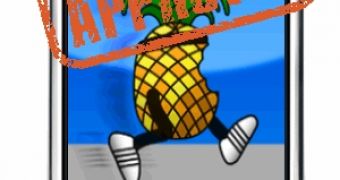19 months ago, the Electronic Frontier Foundation asked regulators to add jailbreaking to a list of explicit exemptions to the Digital Millennium Copyright Act’s anti-circumvention provisions. Today, the EFF says it is lawful to jailbreak an iPhone, after concluding that “When one jailbreaks a smartphone in order to make the operating system on that phone interoperable with an independently created application that has not been approved by the maker of the smartphone or the maker of its operating system, the modifications that are made purely for the purpose of such interoperability are fair uses.”
Federal regulators announced the move Monday, July 26, when they declared there was “no basis for copyright law to assist Apple in protecting its restrictive business model,” according to a Wired.com report. Apple continues to uphold that its closed marketplace is the main ingredient in the success of the iPhone, and said that cellphone networks could suffer “potentially catastrophic” cyberattacks, should iPhone owners be permitted to legally jailbreak their devices. Yet the Copyright Office concluded that, “while a copyright owner might try to restrict the programs that can be run on a particular operating system, copyright law is not the vehicle for imposition of such restrictions.”
An iOS developer, Mario Ciabarra (chief technical officer of Rock Your Phone) is quoted in the report as saying this is great news for those who code iPhone apps. Ciabarra sells an app that turns any iPhone into a Wi-Fi hotspot. The EFF’s decision, however, does not require Apple to comply, in that it shouldn’t try to prevent hacks of its iOS devices. Also noteworthy is that Monday’s decision does not target the iPad, therefore it is still unlawful to exercise hacks on the tablet device.
In making jailbreaking legal, the EFF said it believed Apple had implemented the iPhone’s embedded protection system as a business decision to prevent competition, and that it was unrelated to copyright interests.
Regulators said on Monday that “the activity of an iPhone owner who modifies his or her iPhone’s firmware/operating system in order to make it interoperable with an application that Apple has not approved, but that the iPhone owner wishes to run on the iPhone, fits comfortably within the four corners of fair use.”
Apple, however, maintains that jailbreaking will void a customer’s warranty, with spokesperson Natalie Kerris saying “It can violate the warranty and cause the iPhone to become unstable and not work reliably,” according to the same report.
Another exemption to the DMCA announced Monday included allowing the unlocking of mobile phones to change carriers.

 14 DAY TRIAL //
14 DAY TRIAL //